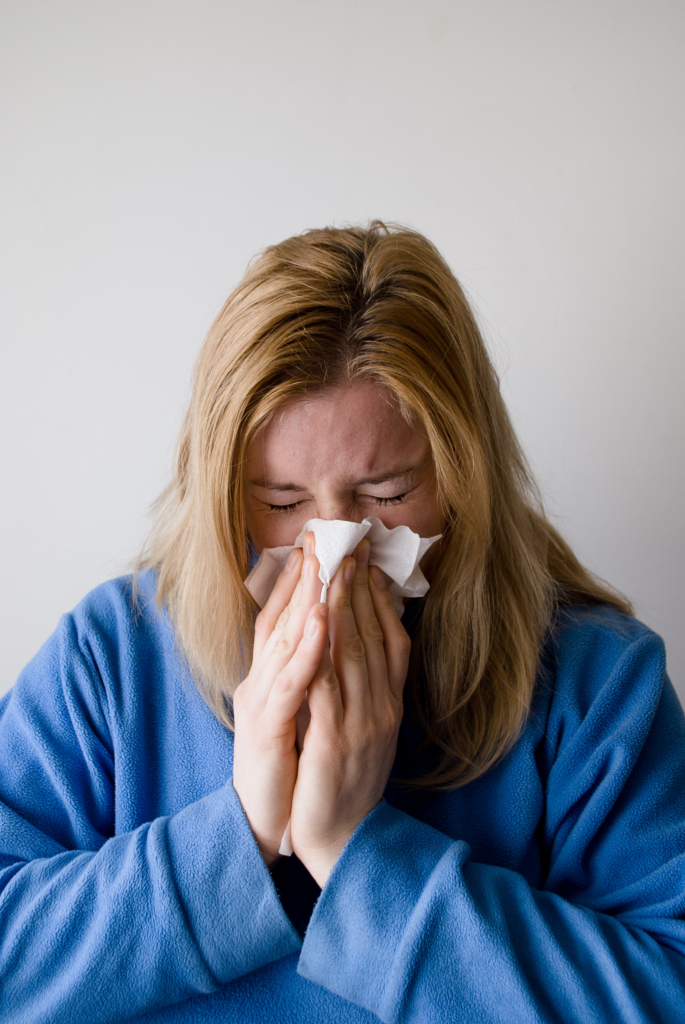Spring time means the flowers are blooming and the weather is getting warmer. Time to open up your windows and let the fresh air in. Oh, wait… It’s allergy season! Trees and plants are starting to pollinate, and some people begin to suffer from seasonal allergies.

Mold Allergies
Symptoms related to a mold allergy can be difficult to distinguish between the cold, flu or seasonal allergies, as many of the symptoms are similar. However, if you are experiencing symptoms in one area that clear up when you are elsewhere, there is a high chance it is a mold allergy. There are many symptoms related to mold exposure such as:
- Sneezing
- Runny or stuffy nose
- Itchy eyes, nose and throat
- Cough and postnasal drip
- Watery eyes
- Wheezing
Symptoms related to mold exposure may vary from person-to-person. Variations in symptoms may also occur based on the type of mold the individual is exposed to. Some molds are natural in the environment, however, molds that develop as a result of water-damage in homes create hazardous living conditions. If you are exposed to these harmful molds, the risk of developing a severe reaction heightens.
Exposure to Black Mold or Toxic Mold
Some allergies to mold are common, however, some molds (like black mold or toxic mold) can initiate illness and serious health effects without signs of an allergic reaction. These molds develop a slew of issues, from skin infections and rashes to cold and flu-like symptoms. In addition to the irritations and respiratory issues from black mold, you may also experience headaches, nausea, vomiting, nose bleeds or bleeding in the lungs.


Is there anything I can do about my symptoms?
In short, there is no remedy for a mold allergy, however there are ways in which the symptoms can be lessened. Over-the-counter medication can help to relieve your pain, but it is vital to identify and evade mold whenever possible. Most of our time is spent indoors, so it is very important to have healthy indoor air quality, especially for people susceptible to mold.
Trying to avoid mold altogether is possible, however removing it from your home or work environment is the best option to pursue. Rest easy at night knowing your home or work environment has the best air quality feasible.
If the over-the-counter drugs don’t seem to be helping, or if you are experiencing more severe allergy-like symptoms in a specific indoor environment, make sure to have the space tested by a licensed professional, like Roberts Environmental Corp., to determine if mold is the cause. As part of our inspections, we will define the source of the mold and develop a remediation plan to remove it. It is very important to hire a testing company that does not perform remediation because of the conflict of interest. Many homeowners have succumbed to unreliable contractors, and it leads to higher bills and unnecessary work.
Give us call for more information at (631) 562-8440

